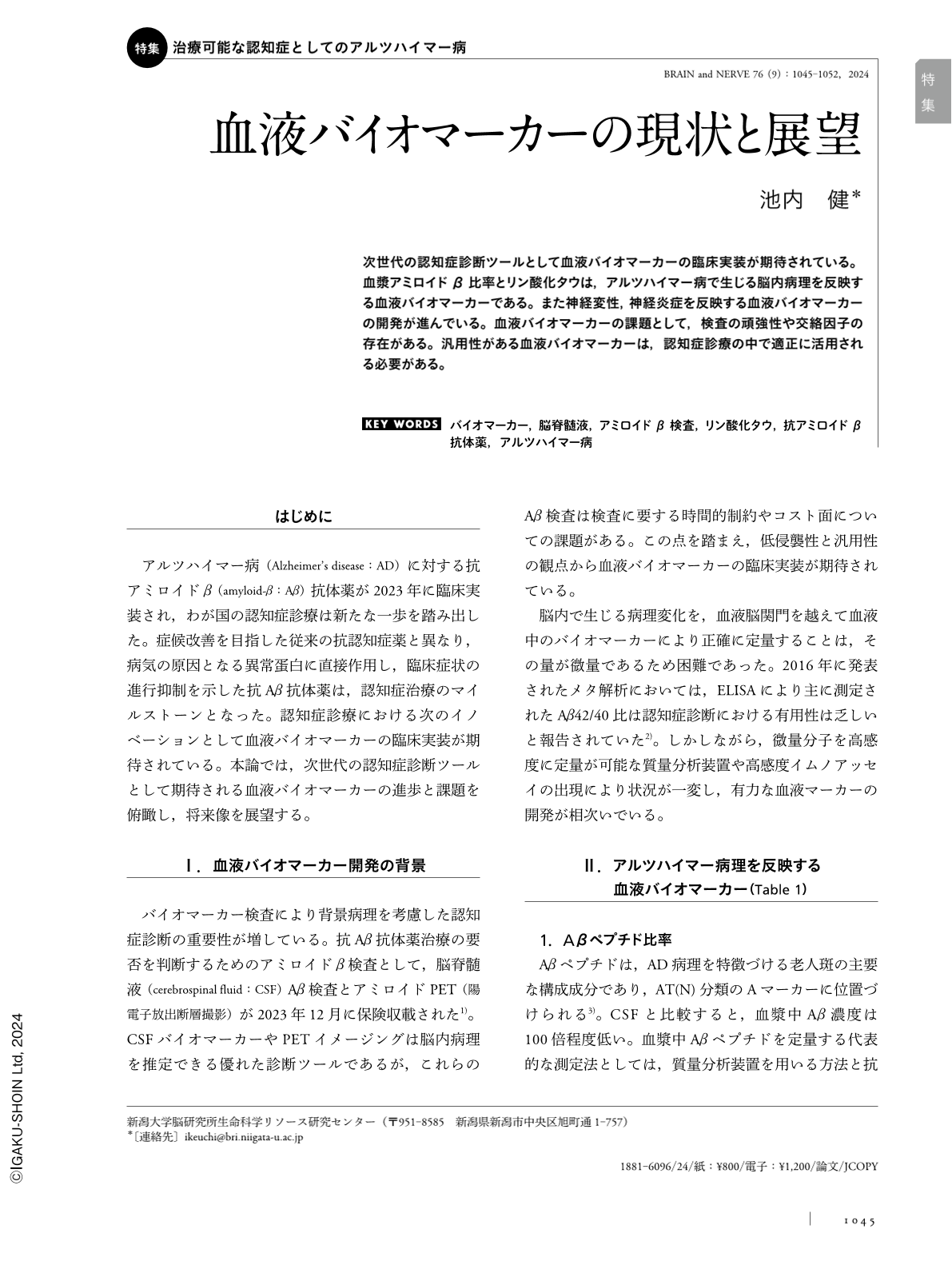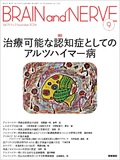Japanese
English
- 有料閲覧
- Abstract 文献概要
- 1ページ目 Look Inside
- 参考文献 Reference
次世代の認知症診断ツールとして血液バイオマーカーの臨床実装が期待されている。血漿アミロイドβ比率とリン酸化タウは,アルツハイマー病で生じる脳内病理を反映する血液バイオマーカーである。また神経変性,神経炎症を反映する血液バイオマーカーの開発が進んでいる。血液バイオマーカーの課題として,検査の頑強性や交絡因子の存在がある。汎用性がある血液バイオマーカーは,認知症診療の中で適正に活用される必要がある。
Abstract
Blood biomarkers are minimally invasive, are available at a relatively low cost, and are easily accessible; therefore, they are expected to play a pivotal role in the diagnosis of dementia. Measurement of the amyloid-β ratio and phosphorylated tau in plasma has shown high potential for accurate detection of brain pathology in patients with Alzheimer's disease. Studies have investigated blood biomarkers that reflect neurodegeneration and neuroinflammation in patients with dementia. Challenges associated with blood biomarker use include the lack of robustness of the test and the role of confounders that potentially prevent their immediate clinical application. Further real-world studies are warranted to validate the usefulness of blood biomarkers in dementia management. Appropriate recommendations for the use of blood biomarkers for dementia have been published for physicians and investigators, both in Japan and overseas. Considering the versatility of blood biomarkers, they should be cautiously introduced for clinical use.

Copyright © 2024, Igaku-Shoin Ltd. All rights reserved.


